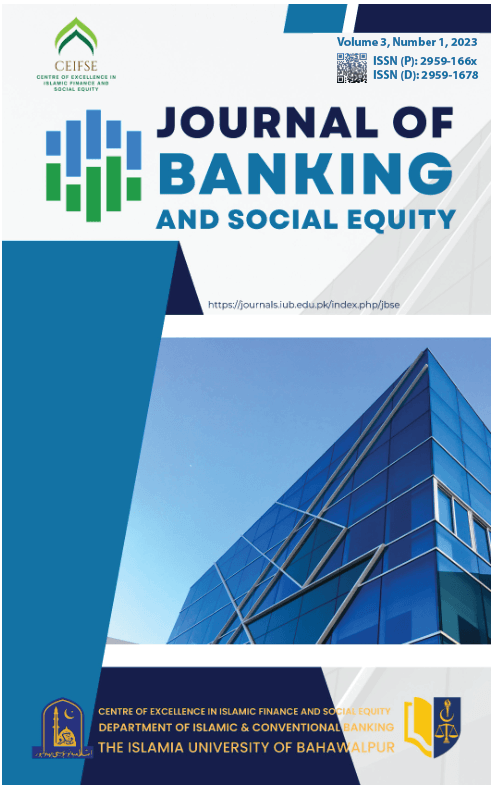Bridging the Gap: The Role of Banking in Ensuring Social Equity Amid Trade-Based Money Laundering
Keywords:
International Trade, Profitability, Regulatory Framework, Social Equity, Trade-Based Money Laundering (TBML), Trade Business QualityAbstract
This research aims to enhance the complex interconnections among Trade based Money Laundering (TBML), trade business quality, profitability, and the regulatory framework in international trade. By introducing the Crime in Global Trade Networks (CGTN) theoretical framework and conducting an extensive literature review on it, this study makes a valuable contribution to the ongoing dialogue surrounding TBML and its ramifications on global trade. 5-point Likert scale is used to collect 207 responses from the employees of different trade organizations working in the province of Punjab, Pakistan. PLS-SEM is used to analyse the data. Results indicate a positive and significant relationship between Instances of Trade-Based Money Laundering and both Trade Business Quality and Regulatory Framework Practices. However, results show no link between TBML and Profitability. The study's significant academic contribution is the comprehensive examination of the influence that regulatory framework policies, which are frequently disregarded, have on the correlation between TBML and critical company performance measures. The study seeks to make a theoretical contribution by acknowledging the regulatory environment's significant impact on international trade. The research's practical implications encompass various stakeholders engaged in international commerce, providing tangible insights for policymakers, regulatory agencies, and corporations. Policymakers and regulatory authorities can use the study's results to improve counter-money laundering (AML) approaches.
Downloads
Published
How to Cite
Issue
Section
License
Copyright (c) 2024 Javeed Iqbal, Farah Yasser

This work is licensed under a Creative Commons Attribution-NonCommercial 4.0 International License.






